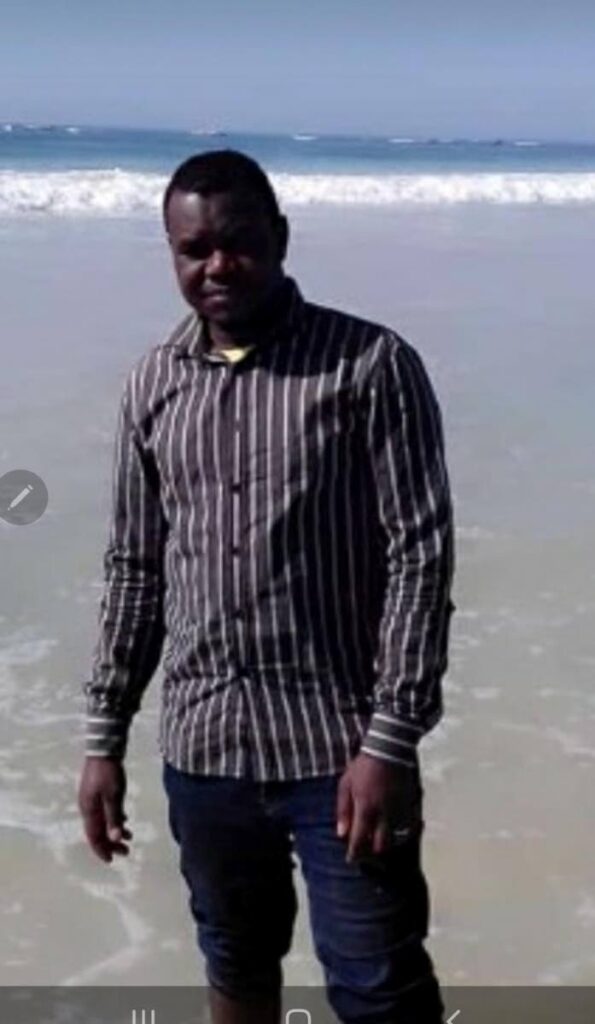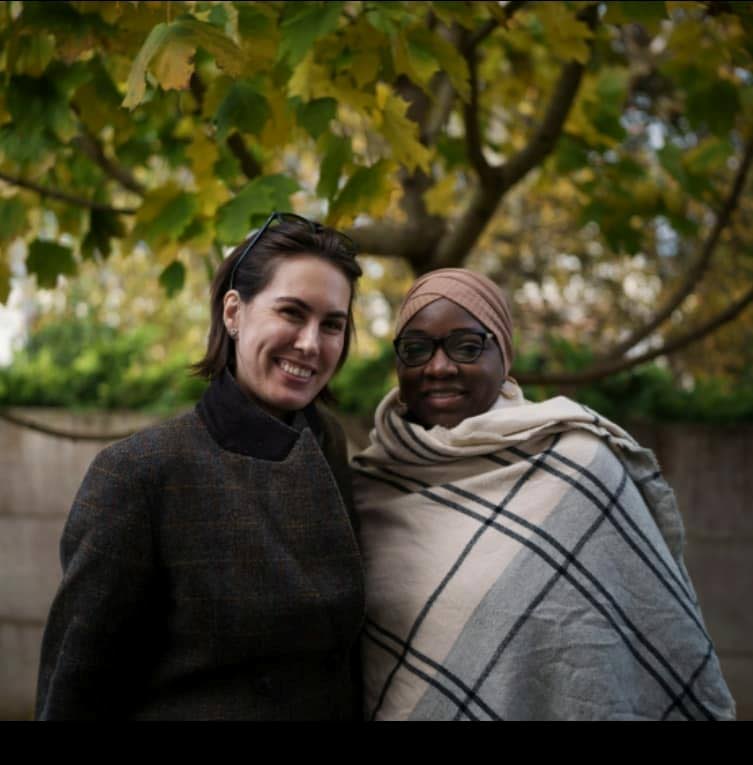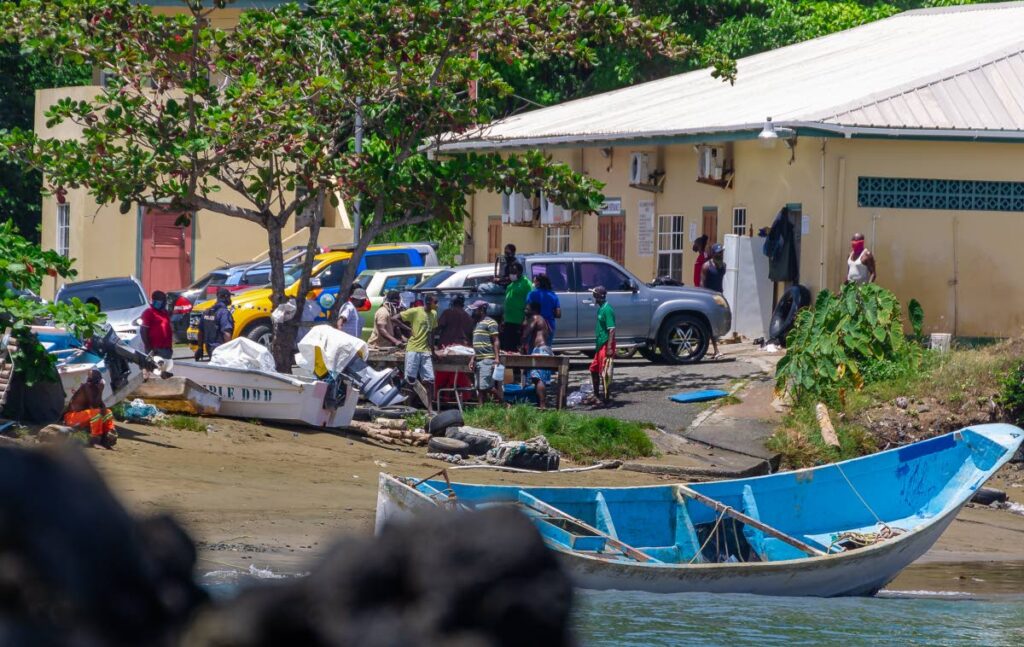Tragic end for Malian migrant lost at sea

After two years, the tragic journey of African migrant Alassane Sow finally came to an end at a cemetery in Central Trinidad, almost 4,000 miles away from his home in Mali.
On the night of January, 13, 2021, Sow and at least 13 other migrants boarded a boat which left a port in the Mauritanian city of Nouadhibou, northwestern Africa bound for a port in Europe.
The journey, however, sadly led to their deaths when they drifted off course and were lost at sea.
Prevailing winds and ocean currents took the ill-fated migrants to the Caribbean, about 4,000 miles away from where their vessel set off.
It is believed they died of dehydration and hypothermia as a result of being lost at sea.
The boat was first sighted by fishermen off the coast of Belle Garden, Tobago, who made the gruesome discovery of the men's remains which at the time were little more than skeletons.
For months the origin of the boat and the identities of the people aboard were a mystery.
Earlier this year, DNA tests revealed that one of the passengers was Alassane Sow.
The tests were done as part of an investigation initiated by the Associated Press (AP) which traced the origin of the boat and the men on board.
While issues of migration are not new to TT, this is believed to be the first time migrants from as far away as Africa drifted to the Caribbean entirely by chance.
Speaking with Newsday via WhatsApp last week, Sow's aunt, Mayemouna Sow, who lives in France, reflected on the peculiar circumstances of his disappearance and death which took him on a journey halfway across the world.

She says while the family has been pained by Sow's disappearance and death, they will always cherish his memory.
She added they were grateful to local authorities and the funeral agency that performed his last rites.
"We were able to honour him through this dignified burial and this report, we will not forget him.
"We will come sooner or later to Trinidad."
Sow said while her nephew had no children, he was married for about five years and worked as a building caretaker in Mauritania for a few years, returning home once or twice a year to visit his family.
She said like the rest of the family, Sow's widow has also dealt with the grief of his death but was grateful for closure.
"She has mourned, she is also a believer and her faith in God helps her to overcome this painful ordeal."
Sow's family are devout Muslims.
Mayemouna said she remembered her nephew as an easygoing, simple man who loved his relatives.
She said he intended to meet his father in Spain.
Recalling her last conversation with him in December 2020, Mayemouna said she was worried about the dangers of him travelling by boat to Europe.
"I tried to talk him out of the trip.
"He tried to reassure me that the project is risk free, but I stood firm on my refusal."
This was the last time Mayemouna heard from her nephew.
Reports from Al Jazeera suggest that since 2014, 20,700 migrants have drowned or disappeared from crossing the Central Mediterranean sea from Africa to Europe.
The UN High Commissioner for Refugees (UNHCR) considers crossing the central Mediterranean sea as one of the most dangerous migration routes in the world.
Mayemouna said she continued trying to call her nephew without success.
"I don't know what happened.
"I thought he was gone and he did not respond to my message of January 13.
"Then every two or three days I tried to reach him but no answer."
With no communication with him, in the months that followed, the Sow family could only wonder what happened to him.
Meanwhile thousands of miles away in Tobago, fishermen on the morning of May, 28, 2021, spotted the vessel.
Mayemouna said she was not particularly surprised at how far the boat drifted.
"It is not that surprising it (the boat) was at sea for months.
"It is his destiny, we are believers."
While Sow's death is still a source of sadness for his family, they can now take the first steps to healing now that his fate has been revealed.
Asked if she had any advice to the relatives of the other migrants who were aboard the boat with her nephew, Mayemouna said while it may be an unpleasant reality, acceptance was the beginning of recovery.
"It is better to know your loved one is dead than gone.
"You can mourn and women can remarry.
"All the people on the boat are dead and we have to accept that."
Responding to Newsday's questions via email on Friday, representatives from the UNHCR's TT office said while the loss of life from shipwrecks and other accidents were tragic they were avoidable and outlined the need for greater co-operation among different partner states.

"In 2022, at least 320 people were accounted dead or missing along the sea routes in the Caribbean. But numbers do not tell the whole story. "There are as many unreported deaths, as the people that go missing or die along the route.
"Shipwrecks and deaths at sea in the Caribbean are avoidable through stronger international cooperation, greater coordination and shared responsibility.
"States should strengthen search and rescue operations, enhance efforts to prevent human smuggling and trafficking and protect the lives of people crossing at sea."
The UNHCR representatives added that they were ready to assist governments in introducing mechanisms to identify people with protection needs while strengthening the asylum systems of these countries.
As of April 2023, over 25,000 refugees and asylum-seekers from 38 countries registered with the UNHCR in TT.
Of those 38 countries, seven were from African nations.
Speaking with Newsday earlier this month Renata Brito the lead AP journalist on the investigation revealed that the Red Cross took DNA samples from the families of several missing Mauritanian men who were believed to be aboard the boat.
The remains which are kept at the Forensic Science Centre, St James, for storage will be tested using these samples to confirm their identities.
Brito said it was possible that in the coming months more of the remains could be identified.
For now, the relatives of these lost travellers must wait for their chance to grieve and eventually heal.


Comments
"Tragic end for Malian migrant lost at sea"